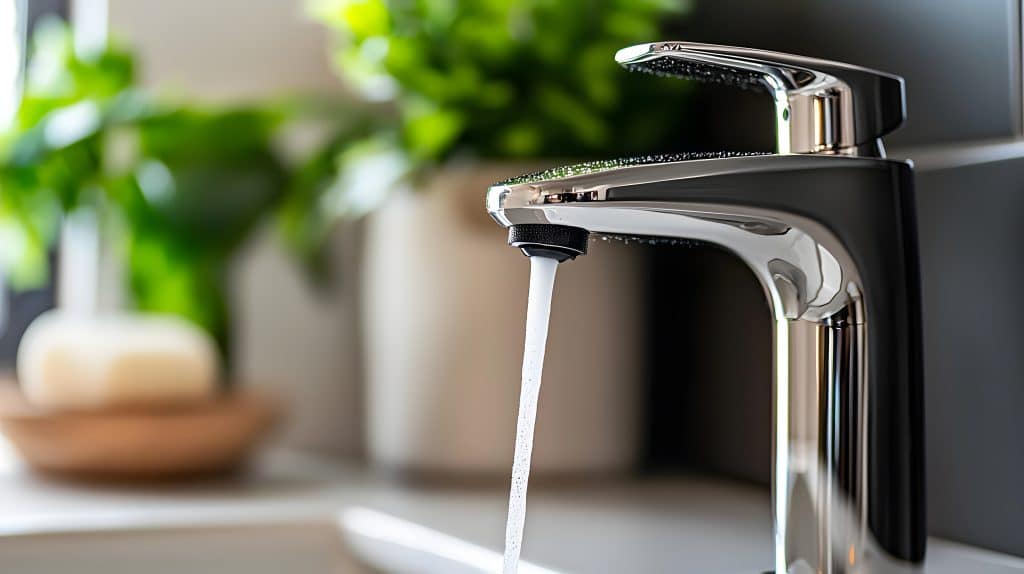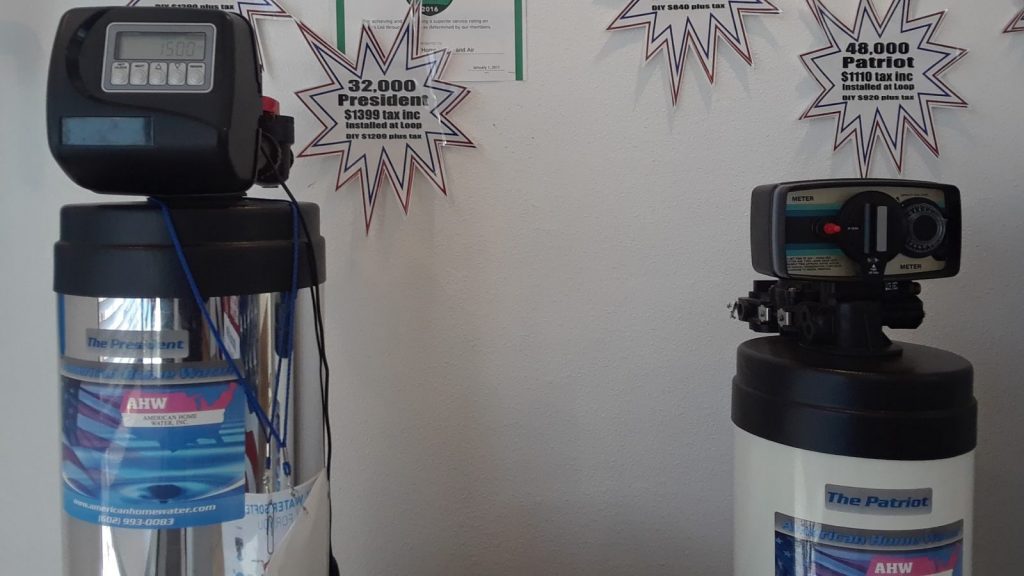| Key Takeaway: To determine if your water softener is working, check for silky water texture, steady salt level reduction, and regular regeneration cycles. If you observe spotting on dishes or decreased water flow, it may indicate the softener is not working properly. Regular maintenance and professional check-ups help ensure optimal performance and prevent common issues. |
How to Assess Your Water Softener’s Performance
Hard water can significantly impact household efficiency and enjoyment. When water contains high levels of minerals like calcium and magnesium, it can lead to limescale buildup in appliances and plumbing. This buildup may reduce the efficiency of water heaters and dishwashers, increasing energy bills and maintenance costs. An efficient water softener helps combat these effects by reducing mineral content, enhancing the performance and lifespan of household appliances.
Having an effective water softener is crucial for maintaining home comfort and efficiency. It’s important to ensure that your water softener is working correctly to avoid common issues associated with hard water. This article aims to help homeowners identify whether their water softener is functioning optimally. We’ll explore signs of proper operation, potential problems, and troubleshooting tips to keep your system running smoothly.
Water softeners offer numerous benefits, including improved appliance efficiency and reduced maintenance costs. Learning more about water softeners and their benefits can help you understand how these systems enhance your home’s water quality. By recognizing the signs of a properly functioning water softener, you can ensure your home remains efficient and comfortable.
Recognizing Proper Regeneration
The regeneration process in a water softener is crucial for its functionality. During regeneration, the system flushes out the minerals it has collected from your water supply, ensuring it continues to soften water effectively. This process involves replacing the minerals with sodium ions from the salt in the brine tank. Regular regeneration prevents limescale buildup, which can otherwise lead to clogged pipes and inefficient appliances.
Indicators that your water softener is regenerating properly include consistent usage patterns and expected salt level drops. If you notice that salt levels in the brine tank are decreasing at a steady rate, it suggests that the system is working as intended. Additionally, you should hear the softener cycling through its regeneration process at regular intervals, typically during low water usage times like overnight.
Maintaining your water softener ensures it operates efficiently. Regular checks and adjustments can prevent issues with regeneration. For more detailed guidance on keeping your system in top condition, explore water softener maintenance tips. By understanding these indicators and maintaining your system, you can prevent common problems and ensure your water remains soft and efficient.
Common Issues Indicating Problems
When a water softener is not working effectively, homeowners often notice several common issues. One of the most apparent signs is spotting on dishes after they come out of the dishwasher. This occurs because hard water minerals are not being adequately removed, leaving behind residue. Another common issue is decreased water flow, which may result from mineral buildup in pipes or appliances.
Statistics show that many households experience these issues due to improperly functioning water softeners. For example, studies indicate that up to 85% of homes in the United States have hard water, making these problems quite prevalent. Addressing these concerns promptly can prevent further complications and maintain household efficiency.
Potential solutions include professional consultations to diagnose and resolve these issues effectively. Sometimes, a simple adjustment or repair can restore your system’s functionality. If leaking issues arise, understanding the reasons behind leaks can guide you toward a solution. Consulting a professional ensures you have all the information needed to make informed decisions about maintaining your water softener.
Interesting Facts about Water Softeners and Hard Water
|
Testing Water Quality
Testing water quality provides valuable insights into how well your water softener is functioning. Homeowners can conduct simple tests using store-bought kits that measure hardness levels, or they can opt for professional testing for a more comprehensive analysis. These tests help determine if the softener effectively addresses impurities and maintains optimal water quality.
Understanding the specific contaminants in your water allows you to tailor treatments to your needs. For instance, Maricopa residents may face unique challenges due to regional water hardness. Reviewing Maricopa’s water hardness can offer insights into local conditions and guide appropriate solutions.
Regular testing not only confirms that your softener is working but also helps identify potential issues before they escalate. By staying informed about your water’s condition, you can ensure that your system operates efficiently and continues to provide the benefits of softened water.
Professional Maintenance and Service
Regular professional maintenance extends the life of your water softener and ensures it operates at peak efficiency. Routine checks should include inspecting valves, checking salt levels, and ensuring the resin bed is functioning properly. These steps help prevent more significant issues that could lead to costly repairs.
Consulting experts for maintenance provides tailored advice, ensuring you have all the information needed to make informed decisions about your system. Professionals can identify subtle signs of wear or inefficiency that homeowners might miss, offering solutions before problems arise.
In addition to softener-specific checks, regular plumbing maintenance can further enhance system performance. Addressing plumbing issues promptly reduces the risk of leaks or other complications that could impact your water softener’s effectiveness.
Evaluating Salt Levels
Salt plays a crucial role in the ion exchange process of water softeners, which is essential for removing hardness minerals from your water. To ensure effective operation, regularly evaluate salt levels in your system. A simple visual check can reveal if the salt level is low, indicating it’s time for a refill.
To maintain optimal performance, follow the manufacturer’s guidelines on how much salt to add and how often. Detailed instructions on adding salt to a water softener can guide you through this process, ensuring you maintain the correct levels.
Addressing common questions about salt management, such as how often to check levels or what type of salt to use, helps keep your system running smoothly. Proper salt management prevents interruptions in the softening process and ensures consistent water quality.
Signs That Your Water Softener Needs Replacement
Recognizing when a water softener needs replacement can save you from unexpected repairs and inefficiencies. Signs such as recurring malfunctions, reduced water softness, or age-related wear suggest it might be time for a new unit. These indicators often mean the system struggles to perform its primary function effectively.
Understanding the typical lifespan of a water softener and its components helps in planning for replacement before issues become severe. Regularly monitoring regeneration frequency can also indicate when performance declines, as frequent cycles may signal inefficiency.
By identifying these signs early, homeowners can avoid the inconvenience of a failing system and maintain household efficiency. Investing in a new unit when necessary ensures continued enjoyment of softened water and protects appliances from hard water damage.
Water Softener FAQs
What are quick ways to check if my water softener is operating?
Can I fix water softener problems without professional help?
How often should I schedule professional maintenance?
Does hard water affect appliance longevity?
Ensuring Peak Performance
Maintaining a water softener involves more than just occasional checks; it requires consistent attention to its performance indicators. Homeowners benefit greatly from understanding the nuances of their systems, which can prevent the inconvenience of hard water. The journey to soft water starts with recognizing the signs of optimal functionality, such as the absence of limescale and the smooth operation of household appliances. These signs are not just indicators of a well-functioning water softener but are also markers of increased efficiency and comfort within the home.
While some aspects of maintaining a water softener can be handled independently, the value of professional guidance cannot be overstated. Experts possess the knowledge to identify subtle issues that may go unnoticed by the untrained eye. Regular professional maintenance ensures that your system operates efficiently, thereby extending its lifespan and maintaining the quality of water in your home. Consulting a professional provides the assurance needed to make informed decisions regarding your water treatment solutions. For those curious about what else might be lurking in their water, booking a free water test with State Soft Water can provide valuable insights.
Next Steps
A fully operational water softener not only enhances household efficiency but also contributes to a more enjoyable living environment. By taking proactive steps in assessing and maintaining your system, you ensure that your water remains at its best. This commitment to maintenance not only protects your appliances but also adds value to your home. As you reflect on your current system’s performance, consider whether it meets your household needs and the potential benefits of professional assistance. Take the initiative to consult with experts for personalized advice and solutions tailored to your specific situation.
Curious about the ideal water pH level for your home? Understanding this can further optimize your water treatment strategy. For more detailed guidance and to ensure your water softener is functioning at its highest potential, book a water softener checkup today. This simple step could lead to significant improvements in your home’s water quality and overall efficiency.














